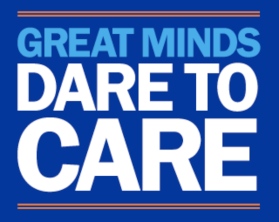
I Have Lost Someone
SHU 24/7 Mental Health Crisis Hotline: 973-275-Help (4357)
Call or text 988 to contact the Suicide and Crisis Lifeline or chat online at 988lifeline.org.
Or text Talk to 741-741 for the Crisis Text Line.
If you are in immediate danger, call 911.
It is estimated that 135 lives are impacted by each suicide death in the U.S.
When you lose someone you love, it is always difficult, but when it’s suicide, it can be even harder. Family and friends are often left with so many unanswered questions and may have feelings of guilt, but remember, there is not a single reason that a person takes their own life.
The most important thing to keep in mind is whatever you are feeling is okay. What you are experiencing is grief and having a variety of emotions when experiencing a loss is normal. Over time, your feelings will change and intensity may increase or decrease. There is no right way to grieve. You may feel:
- Shock: In the beginning you may feel numb or disoriented and have a hard time focusing on daily activities.
- Anger: The anger may be towards the person you lost, another family member, a therapist or even yourself.
- Guilt: Feeling guilty for not being able to prevent it or thinking “If only I had …” This is normal, but doesn’t mean you are to blame.
- Sadness: Intense feelings of sadness that may be accompanied by loss of appetite and low energy.
Keep in mind, you may never understand the “why?”
Talking About It
You may hesitate telling others that your loved one died by suicide because there is a great deal of stigma associated with it. Although that is a decision nobody can make for you, when you tell others they have the opportunity to support you during this difficult time. Not being honest can make you feel more isolated. The Jed Foundation offers these tips:
- Be aware of the language you use. Instead of saying “commit suicide,” which can be seen as assigning blame, use the phrase “died by suicide.”
- Be prepared for people’s discomfort. Your friends and family may feel uncomfortable when you talk about suicide because they might not know what to say. When you’re sharing your story, let people know specific ways they can support you.
- Accept different types of support. Some people may want to help you with logistical tasks, others may share their own experiences with suicide loss and some may not say more than “I’m sorry.”
- It’s okay to disengage. If someone you talk to has a reaction that is unhelpful or triggering for you, it’s okay to end the conversation and find other outlets for sharing and healing.
As you go through the grief process, it’s important to take good care of yourself. The American Foundation for Suicide Prevention has resources to help you.
Helpful article: Grieving a Suicide Loss: Eight Things I Know For Sure
If You Need Help
You can contact CAPS during regular office hours, Monday-Friday 8:45 a.m.- 4:45 p.m.
by calling 973-761-9500 or drop-in to CAPS in Mooney Hall Room 27 to speak with a
counselor. Do not use e-mail in an emergency situation. If you have an urgent need
to speak with a counselor you may also contact the SHU 24/7 Mental Health Crisis Hotline at 973-275-Help (4357). This service is available 24 hours a day/7 days a week.
You can also contact The Suicide and Crisis Lifeline by calling 988 or chat with them online. The Crisis Text Line is also available. Text SCHOOL to 741-741.
Share Your Story
While it may be hard to talk about, sharing your story can create connection and a sense of understanding and hope, which can be helpful for healing. Here are some ways you can share your story:
- AFSP Real Stories Blog
- Suicide Awareness Voices of Education (SAVE)
- NAMI Share Your Story
- International Survivors of Suicide Loss Day

